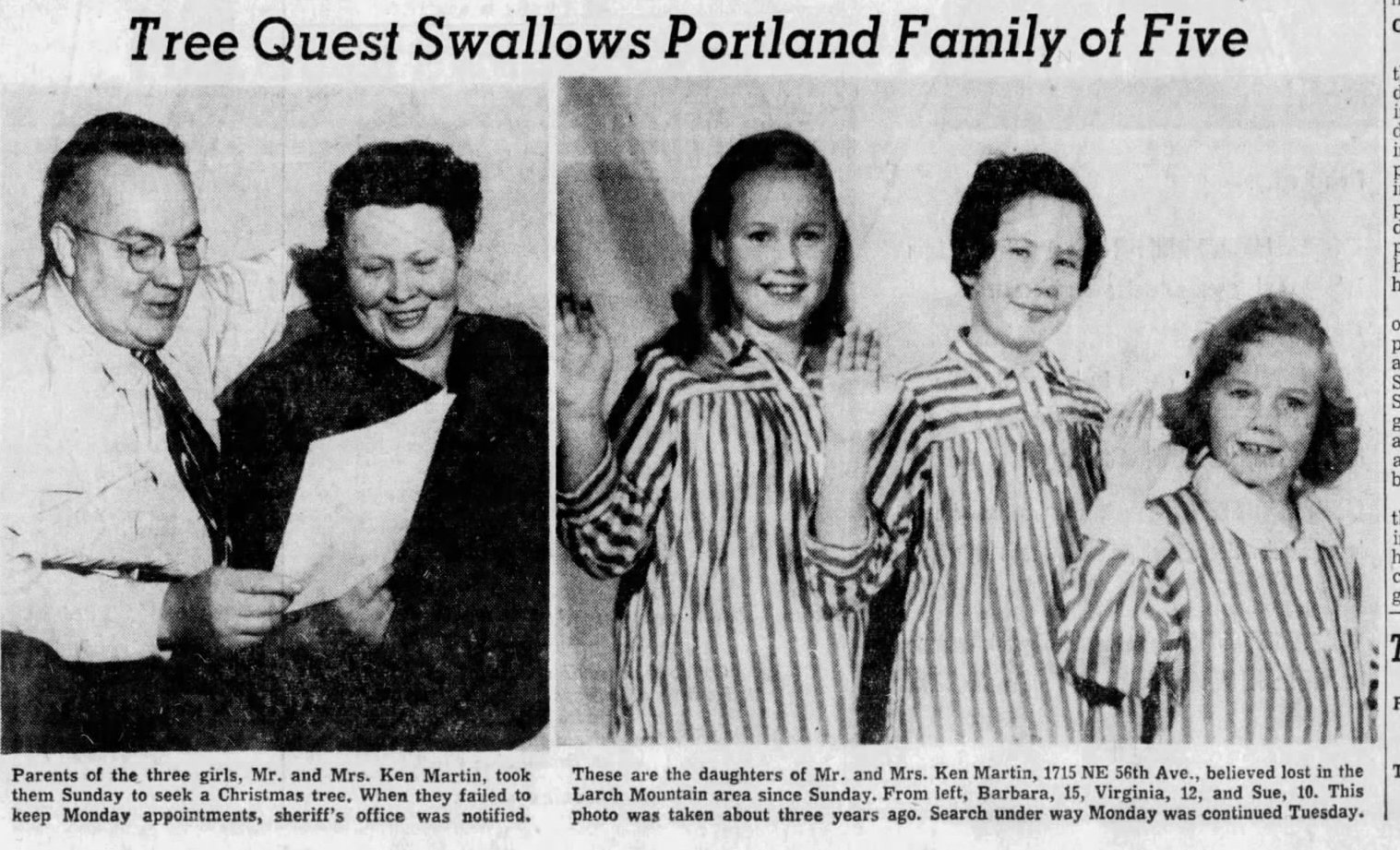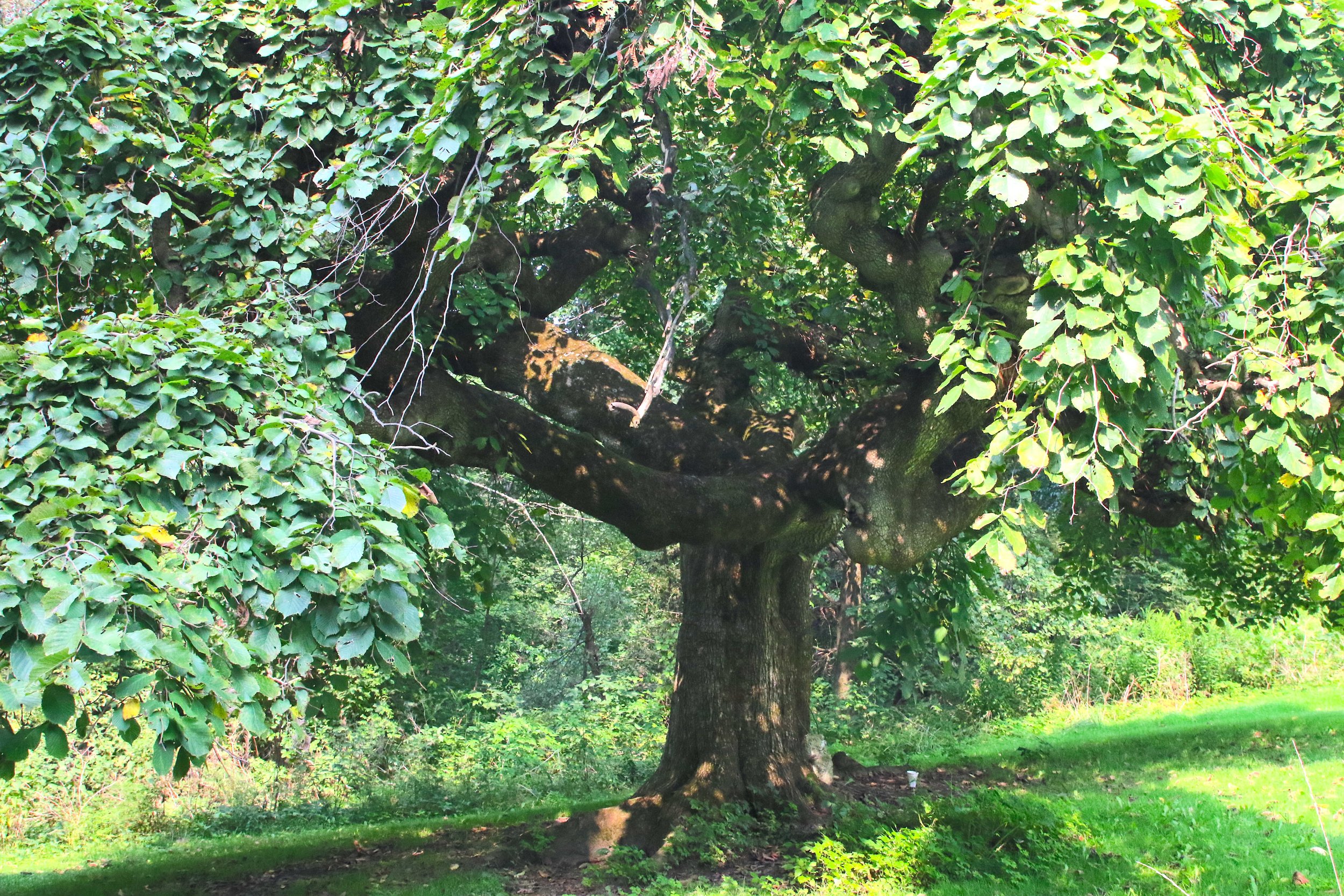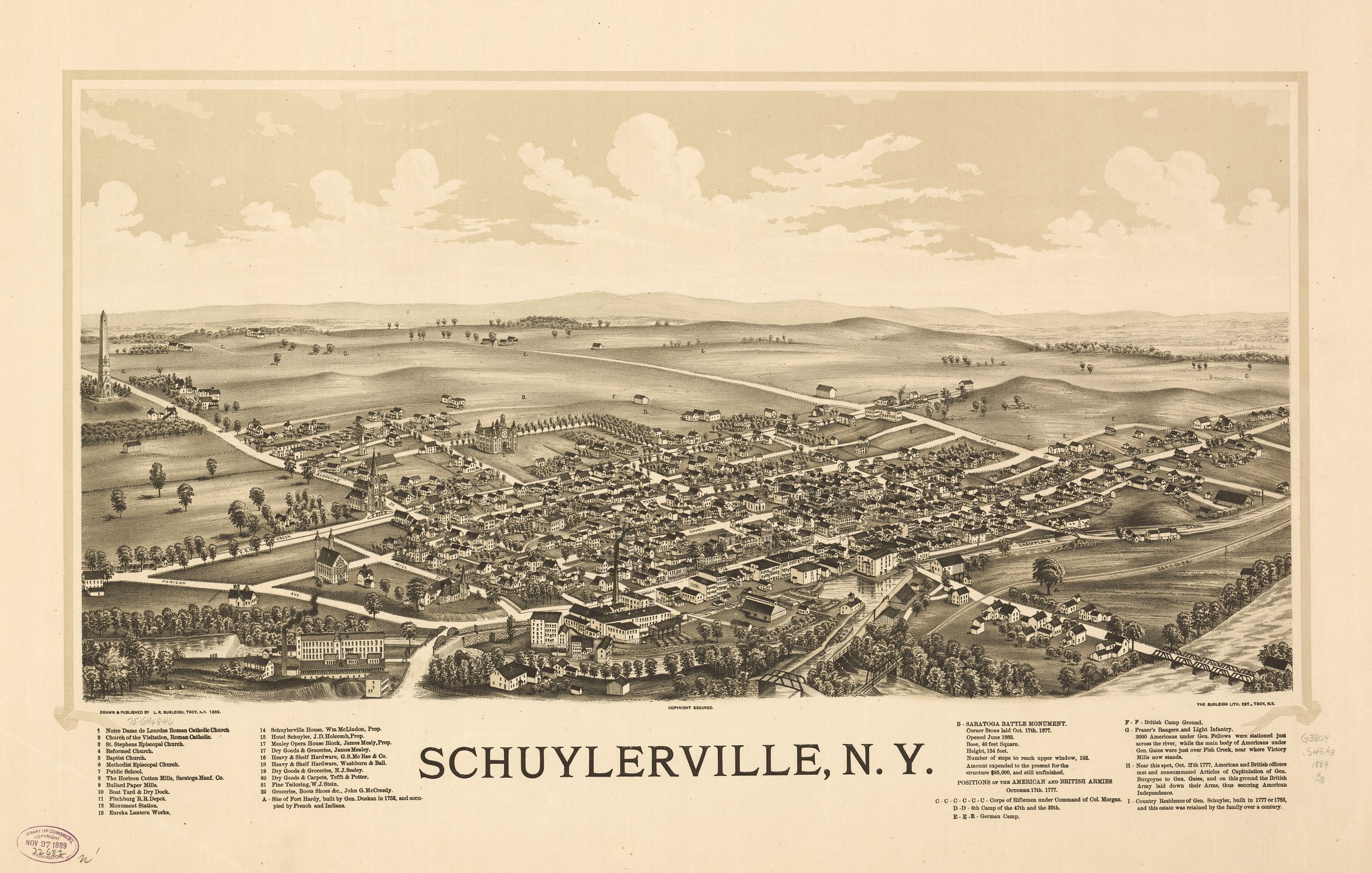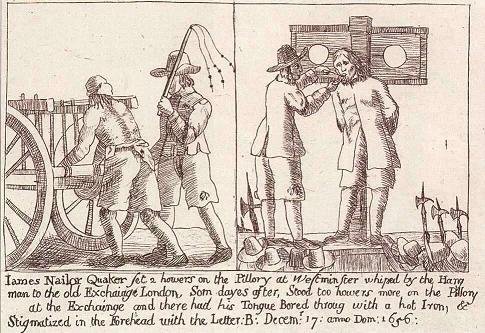
The Vanishing Martin Family: A 1958 Oregon Mystery
The Martin family disappearance has remained one of Oregon's most enigmatic cold cases since December 7, 1958, when Kenneth and Barbara Martin and their three daughters vanished during a simple family outing.
After decades of speculation ranging from accidental drowning to homicide, a breakthrough finally came when independent diver Archer Mayo discovered their 1954 Ford station wagon beneath the Columbia River in November 2024. This discovery came after Mayo spent months secretly excavating in "The Pit" at the bottom of Cascade Locks, where he first spotted a single exposed tire partially buried under the rocky riverbed.
Those interested can follow updates on Archer Mayo's dedicated website: martinmystery.com.

The Camperdown Elm
During my retreat, I encountered a magnificent Camperdown Elm near the stone remnants of a former Gilded Age mansion. This wasn't just any tree, as I quickly informed anyone unfortunate enough to make eye contact with me. No, this was a cultivated specimen, incapable of reproducing from seed—a botanical metaphor so perfect for my personal journey that I nearly sprained something rushing back to my journal to record it.

Schuylerville, New York
The Schuyler family, ever at the vanguard of colonial ambition, shaped Saratoga’s early destiny. Between 1709 and 1710, they lined the southern bank of Fish Creek with mills and sturdy buildings, constructing not just a settlement, but a statement—a declaration of permanence in a world still teetering on the edge of uncertainty. Yet permanence was an illusion, as fragile as the wooden beams that held these frontier homes aloft. On a cold November night in 1745, that illusion was shattered. The village fell to fire and blood, its quiet industry reduced to ruin as Native forces launched a devastating attack. Thirty families perished, their homes turned to embers, their legacies scattered in the wind. Captain Peter Schuyler met his end in the defense of his own house, cut down within the walls he had once believed would stand against time.

Religion: Quakers
Known as Friends or Quakers, the movement rejected priests, rituals, and upheld spiritual equality, allowing women to participate equally in worship. As pacifists, Quakers opposed war and war taxes, refused to bow to nobility, and declined to take oaths, leading to perceptions of disloyalty to the British Crown. Despite heavy persecution, including banned meetings and mass imprisonments, the movement continued to grow and spread.
If you've reached this blog through a search engine, allow me to introduce myself:
I'm Susan, an essayist and narrative storytelling specialist dedicated to preserving authentic historical narratives and perspectives. My work as a historical researcher, archivist, and family history analyst is guided by the understanding that perspective fundamentally shapes our interpretation of history. Through rigorous research and compelling storytelling, I help uncover overlooked narratives that can transform our understanding of the past. I offer consultation services for projects requiring both accuracy and nuance, whether for personal family histories or broader historical accounts aimed at social betterment. Feel free to contact me to explore how alternative perspectives might reroute our understanding of your historical project.

